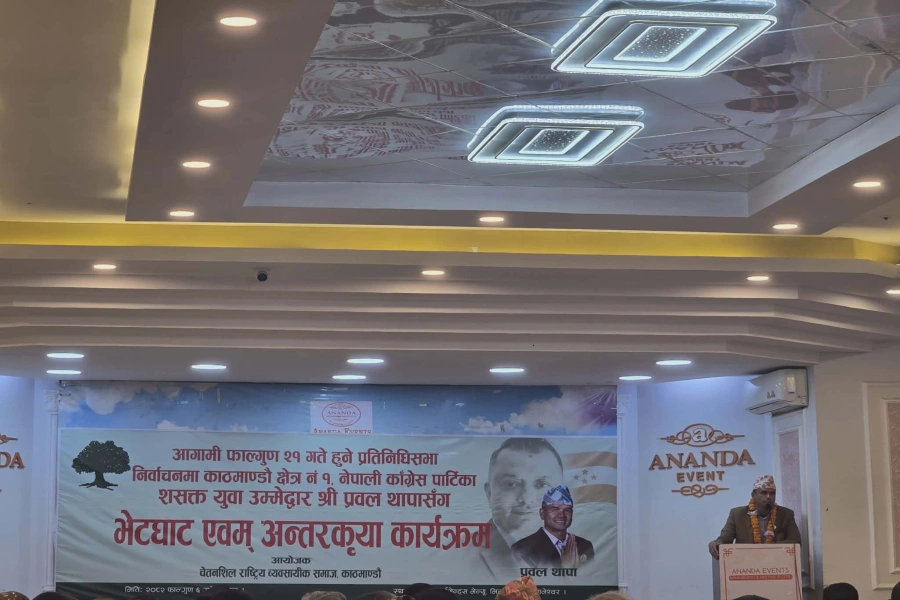In the New Digital Age, the clash of the old and new paradigms and the ever-growing complexity in the globalized world has created chaos in the market system
The once well-founded strongholds of monolithic ideologies are slowly crumbling to be replaced by more holographic paradigms in the 21st century. The conventional notions of citizenship, nationhood, and political participation are breaking down as new social values and practices are being created to enable communities to invent better civic and cultural ethics. Now, humanity is evolving quickly and creating a new cultural narrative meant to unify people for peaceful coexistence as human beings are no longer in equilibrium with nature and are increasingly becoming fractured into subpopulations serving their selfish interests, at times also fighting among themselves in the name of religion, tribe, caste, ethnicity and geography.
The industrial revolutions swept the Western world in the 1800s, creating a massive divide between the bourgeois (the owners) and proletarians (the working class) forcing the latter toward extreme poverty and life of exploitation. Karl Marx, in The Communist Manifesto, came up with a revolutionary answer to solve one of the biggest social problems of that era. The political booklet proclaimed “the history of all hitherto existing society is the history of class struggles and that the inevitable victory of the proletariat would put an end to class struggle forever.” His brilliant ideas ended up having profound effects in the world establishing communist systems in countries like the Soviet Union and China.
Another of Marx’s outstanding work, Das Capital (first published in 1867) predicts that socialism will become mainstream in the future, but only after capitalism has reached its full maturity. Capitalism’s destiny is its collapse after which the great final revolt of the working class will welcome the everlasting age of abundance. Therefore, it would be necessary to let capitalism develop to its full maturity even with the consequences like environmental collapse, ecological degradation, terrorism, extreme poverty, mass migration and the refugee crisis.
Beginning of new era
Shifting paradigm in farming

The leftists, however, still cannot believe capitalism fuels innovation. Breakthrough revolutions like automobiles, the Internet, electricity, jet engines, submarines, moving pictures, the radio, television, medical inventions and smartphones are all outcomes of free-market capitalism. This inventive culture of capitalism and breakthrough scientific discoveries are taking us toward a new era when machines will end up taking human jobs.
One of Marx’s miscalculations in The Communist Manifesto was to imagine that the industrial revolution of the 19th century that brought railways, factories, electricity, and light bulbs represented the final human achievement in productivity. Marx concluded that “once the revolution of the proletariat was over, the only thing that needed to be solved was the redistribution of wealth” after which bourgeois and proletariats would live happily ever after. Unfortunately, such is never the case as people born in the purple always try to regain their lost power and are never happy about the rise of proletariats. Also, in most cases, the leaders of the revolution embrace the bourgeois culture and end up looking as if they sold wolf tickets.
At the same time, if we read Marx’s The Fragment of Machines, it is evident that he was right in many instances. The manuscript published in English in 1973 is becoming increasingly relevant. His economic theory is based on ‘the labor theory of value’ as in the value of a good is, at its simplest form, the necessary labor time to make it. But what happens when the human labor required for creating goods rapidly approaches zero? That is what will happen when machines (Artificial Intelligence) replace humans in the job market? This question is increasingly becoming important as AI is set to take many human jobs. McKinsey Global Institute predicts a close to a billion individuals may be displaced from their current jobs by 2030 and many more by the end of this century.
The concentration of economic power has shifted in the hands of capital-owning techno-elites like Google, Microsoft, Tencent, Alibaba, Facebook and Amazon. Besides the tech giants, CEOs of many fortune 500 companies make millions of dollars while their employees can barely survive with their salary creating this undesirable status quo that could trigger labor revolt as Marx noted at the time of the first Industrial Revolution when automation allowed a capitalist managerial elite to build up significant power. According to Tim Gordon, “when the marginal cost trends towards zero then the price charged typically executes a similar trajectory and the economies of scale will drive a decreasing number of winner-takes-all effective monopoly” for firms like Facebook, Google, Amazon, and Alibaba fueling a revival of Marxism.
Rethinking market
This time it will be about revamping our current regulatory definitions of market power and concentration and strengthening international tax policy than plotting global revolution to replace free-market capitalism.
Vladimir Lenin incorrectly believed the economy could be run as simply as the government post office for he did not understand that the market is a dynamic organic living system like any ecological system evolving from the bottom-up by interrelated independent actions of all actors participating in it. The historical economic failure of the Soviet Union and all communist economies is due to this old collectivist paradigm of command and control systems to run nation-states and economies centrally. The Soviet-style central command and control is a few men sitting in a round table in the capital city bickering about their share from the most recent 5 Year Plan. Large bureaucratic structures are required to gather data to formulate and implement 5 yearly plans from the capital city. In most cases, incomplete data collection coupled with a lack of processing power is creating a disconnect between those in the capital city and reality on the ground. Unfortunately, the Panchayat system also embraced this dysfunctional central command and control mechanism used by the Soviet Union. Interestingly, both the systems collapsed around the same time.
Now, in the New Digital Age, the clash of the old and new paradigms and the ever-growing complexity in the globalized world has created chaos in the market system. This anarchic nature of the market allows it to evolve rapidly to find newer innovative and timely solutions. As the digital networks become more pervasive, the economy will come to resemble ecology of organisms, interlinked and co-evolving, constantly in flux. This change is threatening many old-time ideologies embraced by the political right and left.
Nepal was isolated for more than a century. The multi-party democracy was reestablished in 1990, but the politicians and the political parties that were put on the driver’s seat had only lived under the Soviet-style centrally managed economy in Nepal and had little or no knowledge of governing the free-market capitalism. Thus, the country was pushed further down the spiral because they were not able to effectively implement neo-liberal economic policies.
Nepal’s political debate on YouTube and mainstream media provides a glimpse of our dog-eat-dog society that likes to throw dirt at each other. The ideas discussed are mostly obsolete and is as useful as a chocolate teapot. It seems the viewers of such programs are not able to separate the wheat from the chaff. It is time to call a spade a spade and write a new progressive narrative about the future so that Nepal can be developed in two shakes of a lamb’s tail.
Whether we like it not, as long as capitalism exists, Marx and the Marxian body of thought will stay relevant even in the age of Artificial Intelligence.
The author is a policy wonk





































